Feature
From Brasilia to Monaco, Pedro’s journey to be the next Piquet in F1
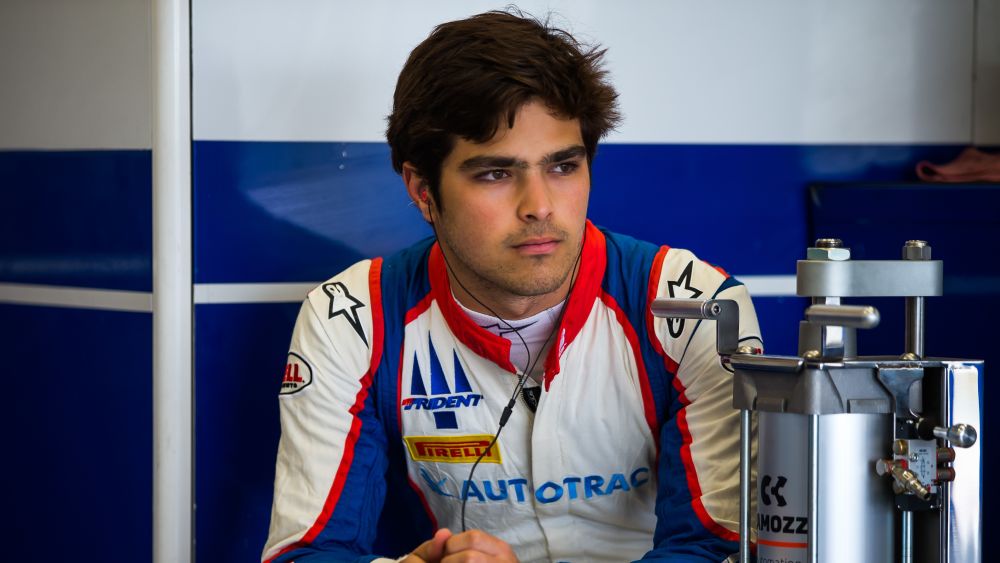
‘There is no place like home.’ That statement is amongst the first things to come up when you google the picturesque city of Brasília, the vibrant capital of Brazil and the place where Pedro Piquet grew up. It is a comment from an online discussion room, asking for a description of the city. Posed with the same question, Piquet best sums it up as a “plant city,” with more space to drive than the likes of Rio de Janeiro, or São Paulo - it is quieter, but more organised.
That opening quote becomes even more significant when you’re a motorsport obsessed child, growing up in a house steeped in racing history. Decorated by the three Formula 1 World Championship trophies that his father Nelson Piquet won, and the television locked onto motor racing. Conversation in the Piquet household did often stray from the subject and they enjoyed discussing other sports, but it almost always swung back to racing. It was the perfect environment to nurture a dream born at an early age.
Although, not quite as early as some may expect.
“When they say that kids are driving go karts at four or five, I cannot believe it,” Piquet laughs. The statement causes a brief pause in conversation, it was an unexpected assertion from a man born into a family where everyone got the opportunity to taste the intoxicating pull of motorsport. Naturally, you would expect that to have come very early on.
When Piquet picks up the discussion, he continues to explain his comment. “I think I was seven or eight when I started and I still had no idea what I was doing! I was driving in the middle of the straight and I thought it was the right thing to do, but no, the right thing is to drive on the clean side, the right side.”
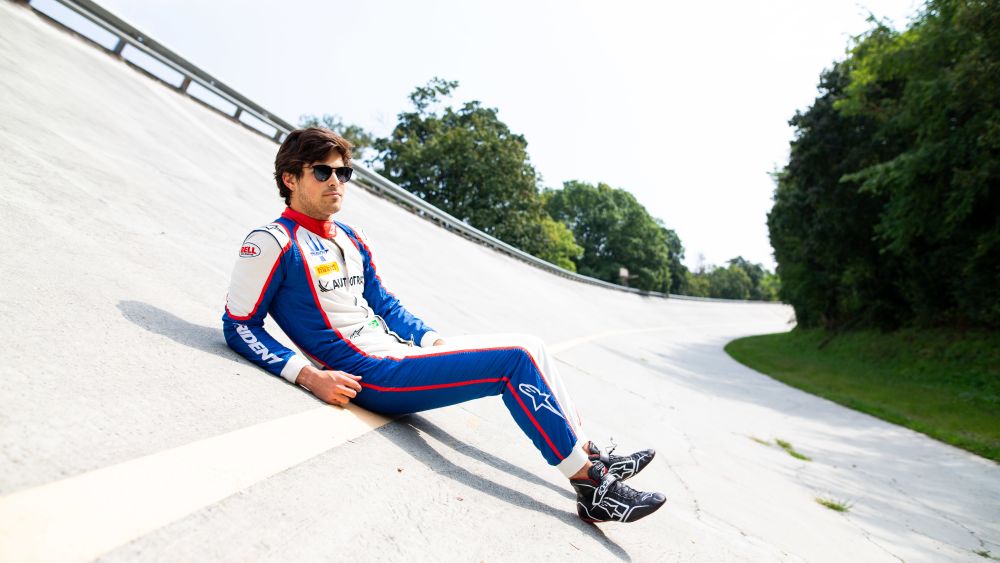
Piquet is affable and engaging - there’s a slight curl to his mid-length dark brown hair, a mischievous, but concentrated smile, and a swagger that threatens to remind you of his father. He was born into a large family, one of seven children, and each of his brother’s sat behind the wheel of a go-kart at one time. Some took to it, others didn’t. Piquet was firmly in the former category. He has grasped the opportunities that his legendary father presented him with: the knowledge, the contacts, the natural flair for racing.
Being the son of a famous racer wasn’t always positive though. Yes, it opens doors for drivers, but there are negatives that come with the tag of being ‘Nelson Piquet’s son.’ Some may even argue the bad outweighs the good. Piquet doesn’t appear to be in that minority, but he does touch on the pitfalls.
Piquet explained: “In the beginning, I would say yeah, I had a problem with being the son of Nelson, because when you are really young, kids can be immature and you can have problems with that. You become the spotlight. It doesn’t happen anymore, everyone treats everyone the same, but at the time, it was a big lesson. It was quite harsh.
“Of course, it is really good to have a father who understands a lot about the business, you know? How everything works for the driver and the team, I feel very grateful to have someone like him helping me.
“In the end, you can have idols and if you have an idol that you know and you can see how he thinks and how he lives his life up close, it is really nice and really cool.”
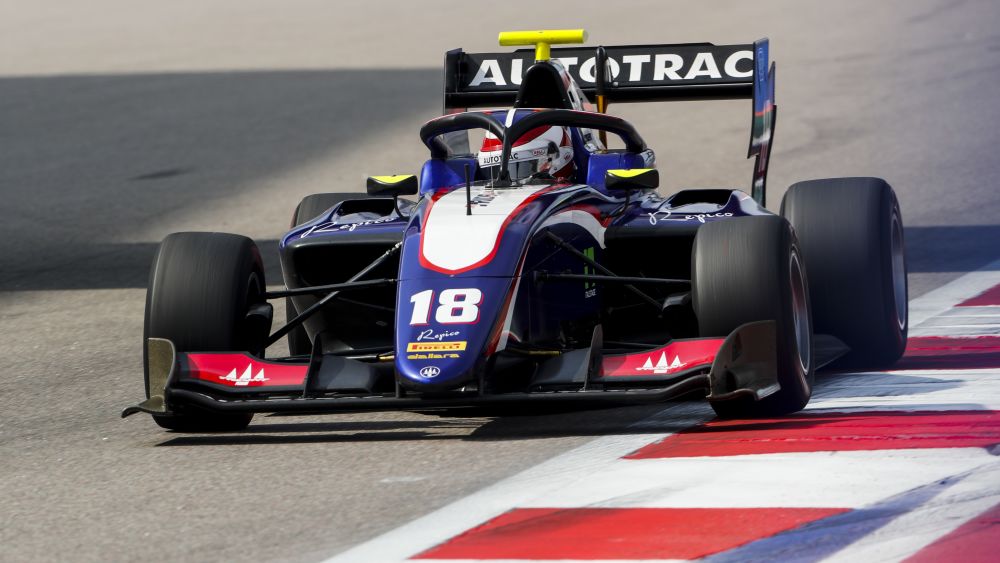
The Brazilian never actually got to watch his father race and admits that the sport has changed a lot since his dad last set foot into a Formula 1 car. He was also too late to watch his brother, Nelson Piquet Jr, race in F1.
“I saw almost nothing, I would say. His last race was in 2006, an Endurance Race in Brazil, when he raced with my brother. I was six or seven and I remember nothing, honestly. After that, he never done anything professionally. He tried to race Porsche in 2014, but he didn’t really like it, so it is just the videos that I have seen. With the access that you have to the internet, and with F1 being more open, they are sharing a lot of videos that I have never even seen! It is really nice.
“I saw my brother’s career a bit closer, but when he was in Formula 1, I was still too young. I was nine, ten, so I don’t remember it very well. I remember NASCAR onwards more, when I was a bit older. My brother has been a big help for me, because in the end, his career and the categories he has done, are much closer to what I am doing now. Of course my dad is a help, but the time when he raced, it is a completely different world, so some stuff, he is quite limited to help me.”
His father and his brother may have helped him along the way, but it is only part of his journey to the higher echelons of junior Formula. It is the sum of those parts - which include his undeniable dedication and a clear natural ability - that have always marked him out as one to watch. His two Brazilian Formula 3 Championships encompassed an incredible 25 wins, from 32 races.
His success in the category led to his eventual move to Europe, which had been delayed by a year so that the Brazilian could finish his education. Initially moving to Amsterdam, and now Monaco, he was still just a teenager at the time and it was a difficult, but vital jump to make - one many young drivers struggle with.
To make it on the Formula ladder, you have to race in Europe, which Piquet says can hand Europeans an edge. They don’t need to leave home, they know the circuits and they feel comfortable. The transition time for a driver from outside of Europe, like Piquet, can threaten to derail a promising career.
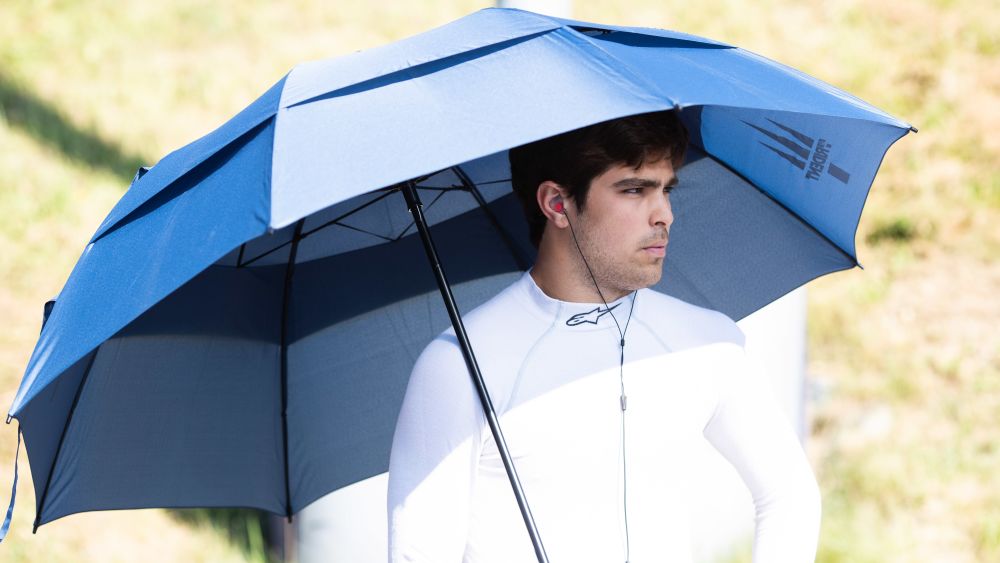
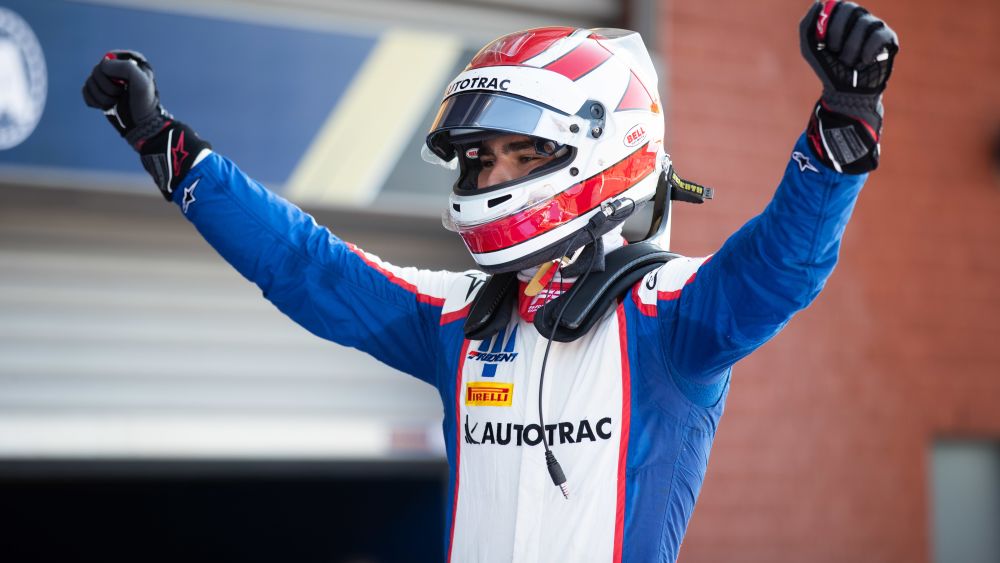
“It was a big challenge,” Piquet affirms. “All of these European drivers, they don’t need to make a big change in their lives, they can live at their houses forever if they want. For an international driver, from Brazil, from the USA, they need to move at a young age and that is not easy for a 16/17-year-old kid.
“I did two years in the old FIA F3 and the first year was quite difficult. I had a difficulty in understanding the data, because in Brazil I was alone, I never had to match anyone else’s style and it was just about improving on myself. You go to Europe and suddenly you need to change how you do a corner and things like that and it becomes a bigger challenge. It is much more competitive.
“For sure, it is much easier for a kid who has already raced F4 in Europe to go and race F3 in Europe, because you already know loads of the tracks. For myself, I could do some testing during the year in Europe, but it is not the same as living here and driving here.”
All of these European drivers, they don’t need to make a big change in their lives, they can live at their houses forever if they want. For an international driver, from Brazil, from the USA, they need to move at a young age and that is not easy for a 16/17-year-old kid.
The statistics paint the picture of that initial struggle. Piquet finished 19th in his first season in European F3, with no wins and no podiums. The second season saw a marginal improvement, with one podium and 14th place overall. It was in GP3, during his third year of European racing, that he truly came into his own.
As well as changing Championships, Piquet moved from Amsterdam to Monaco, swapped Van Amersfoort for Trident and collected his first victory at that level of racing, winning twice and netting four podiums.
Moving in with his brother and sister, he became more comfortable in his surroundings. He got back into go-karting too, which now takes up some of the spare time that he had so much of in Amsterdam.
“My dad wanted me to live somewhere where I had some family,” he continued. “I also started go-karting again quite professionally. In our Championship F3, we race a bit, but it is not every weekend, so sometimes you can go a long time where you don't drive a car.
“Karting gives you that adrenaline. I wouldn’t say I am professional with the equipment or anything, but I treat the races that I do professionally and I focus quite a lot. I am not doing races during my F3 season, but I done a lot in January and February. I also have a lot of go-kart stuff in Brazil and I tend to go to a track in the middle of nowhere and stay four/five days, just driving on my own. For me, that is really nice and it takes my focus off racing Formula cars.”
The move to Trident has played a large part in that turn of form. The 21-year-old is settled with the Italian F3 team. Despite some understeer issues that plagued pre-season testing, he is in a car that can win races and an environment that allows him to flourish.
Being a three-time world champion at a track is not easy. People circle around you! They want photos and signatures all the time and he is not a big, big fan of that.
“It is my second year with them and they are very open and friendly - they are really fun,” he explained. “Last year, my dad was coming a lot. It was a new team and I don’t think he was comfortable with me travelling alone, because I was still 19, so he wanted to help me a bit.
“It is quite tough for him to come here though. Firstly, because it is a long trip and secondly, because being a three-time world champion at a track is not easy. People circle around you! They want photos and signatures all the time and he is not a big, big fan of that. He now knows that the team is good, he knows the people there, so he trusts them and he knows that things should go alright.”
For all of his success so far, there is one moment that stands out for Piquet. He is part of a cluster of drivers with racing heritage, which includes Mick Schumacher, Louis Delétraz and Giuliano Alesi - it is the latter who draws the biggest talking point.
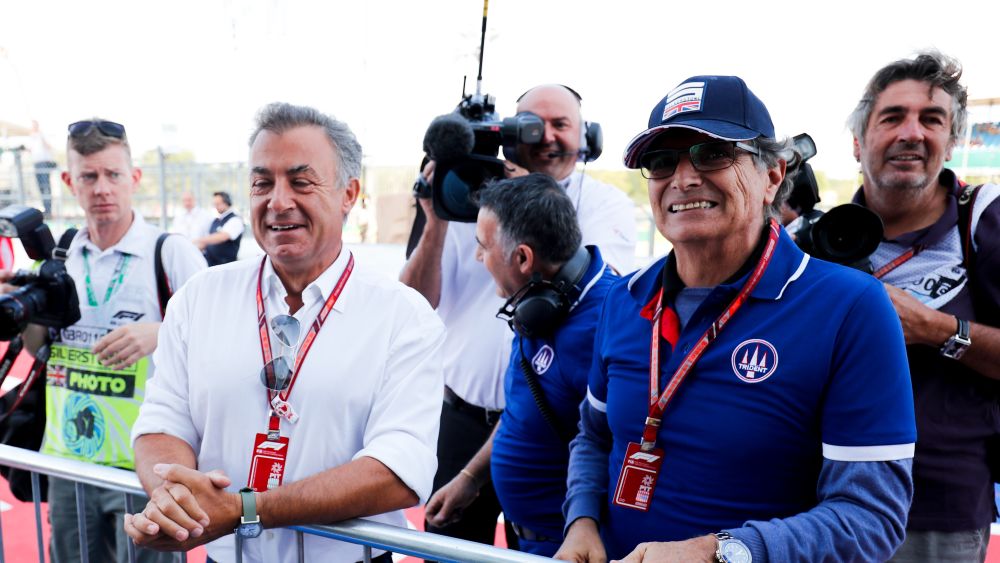
Moving in with his brother and sister, he became more comfortable in his surroundings. He got back into go-karting too, which now takes up some of the spare time that he had so much of in Amsterdam.
“My dad wanted me to live somewhere where I had some family,” he continued. “I also started go-karting again quite professionally. In our Championship F3, we race a bit, but it is not every weekend, so sometimes you can go a long time where you don't drive a car.
“Karting gives you that adrenaline. I wouldn’t say I am professional with the equipment or anything, but I treat the races that I do professionally and I focus quite a lot. I am not doing races during my F3 season, but I done a lot in January and February. I also have a lot of go-kart stuff in Brazil and I tend to go to a track in the middle of nowhere and stay four/five days, just driving on my own. For me, that is really nice and it takes my focus off racing Formula cars.”
The move to Trident has played a large part in that turn of form. The 21-year-old is settled with the Italian F3 team. Despite some understeer issues that plagued pre-season testing, he is in a car that can win races and an environment that allows him to flourish.
“It is my second year with them and they are very open and friendly - they are really fun,” he explained. “Last year, my dad was coming a lot. It was a new team and I don’t think he was comfortable with me travelling alone, because I was still 19, so he wanted to help me a bit.
“It is quite tough for him to come here though. Firstly, because it is a long trip and secondly, because being a three-time world champion at a track is not easy. People circle around you! They want photos and signatures all the time and he is not a big, big fan of that. He now knows that the team is good, he knows the people there, so he trusts them and he knows that things should go alright.”
For all of his success so far, there is one moment that stands out for Piquet. He is part of a cluster of drivers with racing heritage, which includes Mick Schumacher, Louis Delétraz and Giuliano Alesi - it is the latter who draws the biggest talking point.